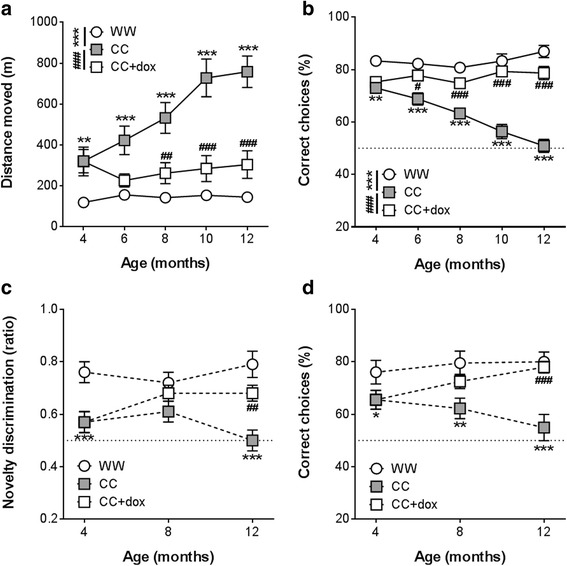Fig. 3.

Behavioural alterations in male rTg4510 mice following doxycycline treatment. Locomotor activity revealed bi-transgenic rTg4510 (CC) mice to be hyperactive at 4 months and become increasingly more active as they age, whilst CC + doxycycline (dox) mice remained stable at levels similar to those observed prior to starting doxycycline treatment (a). T-maze rewarded alternation task accuracy was significantly poorer in CC mice at 4 months of age, and declined progressively until reaching chance levels at 12 months. Doxycycline treatment significantly improved performance; CC + dox mice made significantly more correct choices than CC mice from 6 months onwards (b). CC mice were impaired in novelty discrimination, as assessed in a spatial novelty preference Y-maze task. CC + dox mice showed improved novelty discrimination compared to CC at 12 months (c). Spatial learning was assessed using acquisition of an aversively-motivated Y-maze; CC mice made significantly fewer correct choices over 40 trials than WW mice, and further decreases were seen with age. Doxycycline treatment improved performance, with CC + dox mice making more correct choices than CC at 8 and 12 months (d). Note that hashed lines do not represent longitudinal, repeated assessment of these animals. All data presented as mean ± SEM, dotted horizontal lines denote chance level. *p < 0.05, **p < 0.01, ***p < 0.001, versus wild-type/non-transgenic rTg4510 (WW) controls; # p < 0.05, ## p < 0.01, ### p < 0.001, versus rTg4510 CC mice
